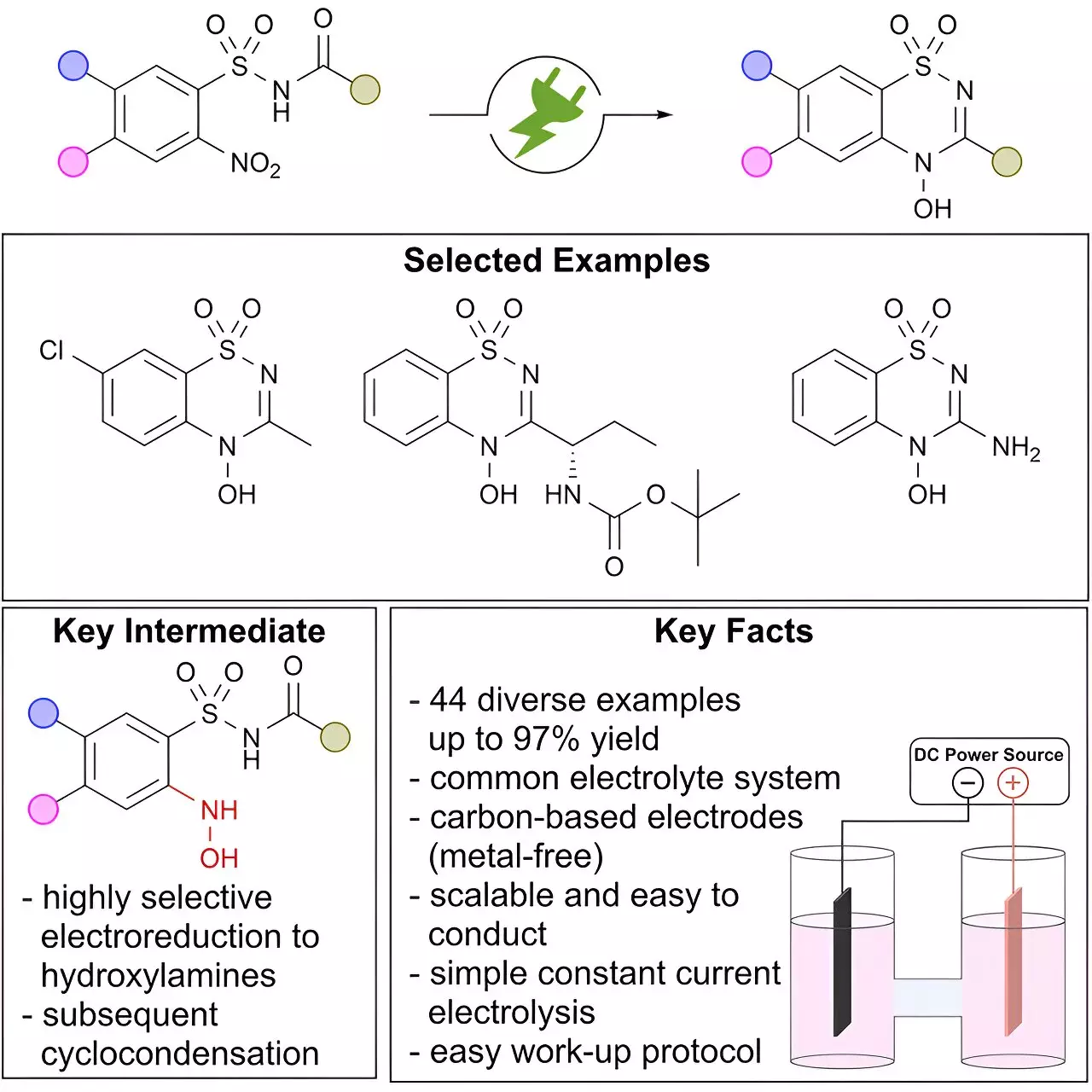

Cutting-edge research in the field of electrochemistry is paving the way for more sustainable and efficient methods of synthesizing novel pharmaceutical compounds. Recent studies have highlighted the potential of electro-organic synthesis to provide direct access to previously unexplored structural motifs that could revolutionize drug discovery.
One of the key findings in a study by scientists from the Max Planck Institute of Chemical Energy Conversion (MPI CEC) is the utilization of electrochemistry to convert nitro groups into N-hydroxy heterocycles. This innovative approach not only eliminates the need for large amounts of reductants or scarce metals but also opens up new possibilities for the development of modern drug candidates.
N-hydroxy heterocycles, particularly benzo[e]-1,2,4-thiadiazine-1,1-dioxides, have emerged as a crucial structural motif in blockbuster pharmaceuticals like Diazoxide. Despite their significance, the exocyclic N-hydroxy modification within heterocycles remains relatively unexplored. The stability and unique properties of the N-O bond make this motif an intriguing target for pharmaceutical research.
Through electro-organic synthesis, researchers have achieved a breakthrough in the selective and scalable production of benzo[e]-1,2,4-thiadiazine-1,1-dioxides modified with N-hydroxy moieties. This method represents a significant advancement in accessing structurally diverse compounds with potential applications in drug development.
While the development of novel substances with N-hydroxy modifications is a promising step forward, the biological properties of these compounds remain largely unknown. Further investigation is needed to evaluate the efficacy of these compounds, understand their metabolism, and explore potential pharmaceutical applications. This research has the potential to enhance drug efficiency and pave the way for the discovery of new therapeutic agents.
The integration of electrochemistry into organic synthesis represents a game-changing approach in sustainable drug discovery. By harnessing the power of electro-organic synthesis, scientists are unlocking novel pathways to access distinct structural motifs that could lead to the development of innovative pharmaceuticals. The collaboration between researchers from MPI CEC and Johannes Gutenberg-Universität Mainz showcases the impact of electrochemistry in advancing the field of organic chemistry and opening up new possibilities for drug discovery.
In the world of pharmaceuticals, innovation often hinges on finding new compounds that can lead…
In the heart of the Amazon basin, drastic climate changes present an alarming reality that…
Air fryers have rapidly surged in popularity, captivating home cooks and culinary enthusiasts alike. When…
In an era where technology and social media reign, the importance of sleep often takes…
In an era where environmental consciousness is paramount, the maritime industry has long been scrutinized…
Radionuclides, often relegated to discussions surrounding nuclear energy and radioactive waste, have far-ranging implications for…
This website uses cookies.